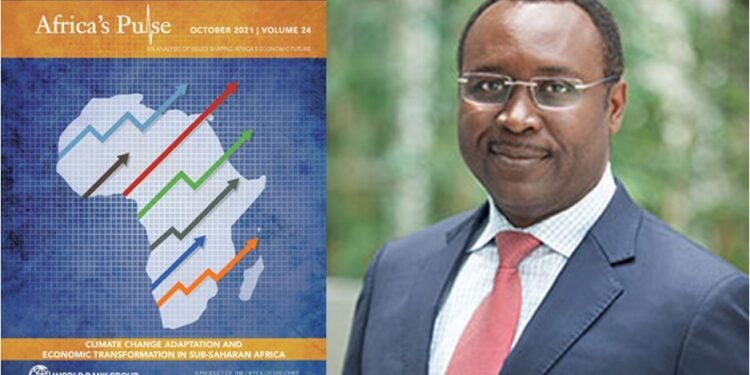Global apex bank, the World Bank has advised Nigeria to diversify her economy soonest or be ready to suffer a huge wealth value risk due to the shift from non-renewable energy to renewable energy.
This was contained in the bank’s new release on Africa’s Pulse with the report entitled ‘Climate change adaption and economic transformation in Sub-Saharan Africa’.
The report singled out Nigeria and Angola as countries rich in oil and gas deposits while calling out Mozambique, Kenya and Senegal as countries with new oil and gas discoveries.
According to the report, “Countries with a high share of carbon and carbon-linked wealth are highly exposed to carbon risk and need to avoid policies and investments that might elevate their exposure.
“As the world decarbonizes, the shift away from oil, gas, and coal will pose risk to the value of the wealth of countries that are already abundant in nonrenewable energy (for example, Nigeria and Angola), but also that of countries with recent oil and gas discoveries (Mozambique, Kenya, and Senegal).
“The risk of stranded assets in these countries highlights the need to accelerate the reduction of their wealth exposure to carbon risk.”
The Federal Government, through the Ministry of Petroleum Resources, on Thursday, said that there was every need to diversify the economy in order to have divergent avenues to global energy transition.
Chief Timipre Sylva, the Honorable Minister of State for Petroleum Resources, made this known at the Seplat Energy Summit 2021 which had the theme, “Global Trends in Energy Transition and the Africa Perspective”.
He was quoted as saying, “This is undoubtedly a major concern for climate activists in developed nations, but the clamour to emphasis only renewable energy as the sole pathway to energy transition is a source of concern for African countries.”
“This is why in Nigeria, we reject the concept of a single pathway to the energy transition.”
The World Bank report also showed that Africa’s economy is rebounding from the recession orchestrated by the global pandemic that bedeviled world economy.
“In Sub-Saharan Africa, the economy is set to expand by 3 .3 percent in 2021, one percentage point higher than the forecast of the April 2021 Africa’s Pulse, with projections for 2022 and 2023 just below 4 percent. “This rebound was fueled by elevated commodity prices, relaxation of stringent measures, and recovery in global trade. Commodity prices remain well above their pre-pandemic levels, with several reaching all-time highs.
“Oil prices rose above their pre-pandemic levels in the first half of 2021 but have plateaued more recently due to demand concerns and the gradual reversal of previous production cuts by the OPEC+ alliance. “Metal prices remain generally stable on aggregate. The surge in commodity prices combined with rapid growth in China in the first half of the year boost African exports.”
The report also made a statistical comparison of imports and exports within the sub-region.
“The rise in imports (2.17 percent) however outpaced that of exports (1.67 percent), generating a current account deficit comparable to pre-pandemic levels (-0.50 percent).
“On the supply side, available data for the first two quarters suggest that the recovery was supported primarily by a rebound in the service and industry sectors, and to a lesser extent agriculture,” the report added.
Azuka Edokobi is a Writer , a Farmer, a Supply Chain Expert and an Entrepreneur




















































